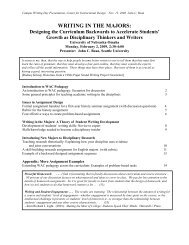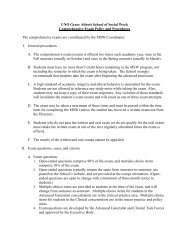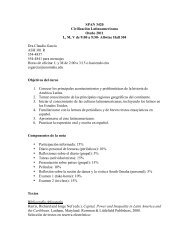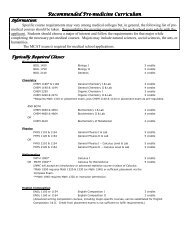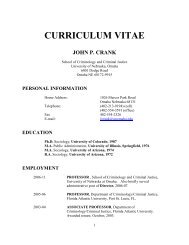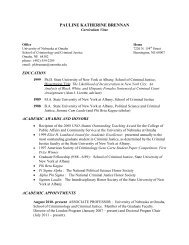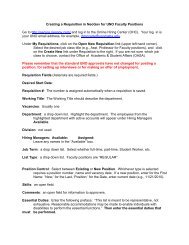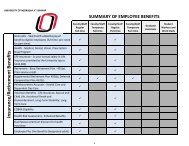It Is Broken. Can It Be Fixed? A Look at the European Union's ...
It Is Broken. Can It Be Fixed? A Look at the European Union's ...
It Is Broken. Can It Be Fixed? A Look at the European Union's ...
You also want an ePaper? Increase the reach of your titles
YUMPU automatically turns print PDFs into web optimized ePapers that Google loves.
<strong>the</strong> governments through ECOFIN judge <strong>the</strong> quality of <strong>the</strong>ir own policies (F<strong>at</strong>as, Von<br />
Hagen, Hallett, Strauch, and Sibert, 2003, p. 67).<br />
They suggest th<strong>at</strong> <strong>the</strong> Sustainability Council be funded by and report to <strong>the</strong> <strong>European</strong> Parliament,<br />
r<strong>at</strong>her than ei<strong>the</strong>r <strong>the</strong> Commission or <strong>the</strong> Council. They acknowledge th<strong>at</strong> <strong>the</strong> idea for cre<strong>at</strong>ion of<br />
yet ano<strong>the</strong>r EU institution may seem un<strong>at</strong>tractive to many. However, <strong>the</strong>y feel th<strong>at</strong> <strong>the</strong> benefits of<br />
increased transparency and democracy outweigh this concern and warrant consider<strong>at</strong>ion of <strong>the</strong>ir<br />
proposal.<br />
Enderlein suggests th<strong>at</strong> <strong>the</strong> problem for EMU is “how to achieve domestically stabilizing<br />
fiscal policies without cre<strong>at</strong>ing a collective action problem based on free-riding deficit-spending<br />
by member countries’ governments” (Enderlein, 2004, p. 1042). He suggests two possible<br />
solutions: (a) a full-fledged system of fiscal federalism wherein any surplus money from fast<br />
growing member st<strong>at</strong>es would be redistributed to low growth countries; and (b) abolishment of<br />
<strong>the</strong> SGP replacing it with reliance on Article 99 of <strong>the</strong> TEU’s Broad Economic Policy Guidelines<br />
(BEPGs).<br />
Of <strong>the</strong>se solutions, Enderlein suggests th<strong>at</strong> <strong>the</strong> first, while having some appeal, is<br />
unrealistic, <strong>at</strong> least <strong>at</strong> this juncture. Therefore, he recommends scraping <strong>the</strong> SGP and relying on<br />
wh<strong>at</strong> is referred as <strong>the</strong> ‘soft’ approach of <strong>the</strong> BEGPs. He argues th<strong>at</strong> decisions on deficits and<br />
surpluses are fundamentally political in n<strong>at</strong>ure and, <strong>the</strong>refore, <strong>the</strong> ‘hard’ approach of <strong>the</strong> SGP<br />
will not work. He distinguishes between <strong>the</strong> two approaches with <strong>the</strong> following example: “<strong>the</strong><br />
SGP approach: ‘you are not allowed to run deficits above 3 per cent’…<strong>the</strong> BEPG approach: in<br />
2004 you should reach a budgetary deficit of 1 per cent’” (Enderlein, 2004, p. 1042). Whe<strong>the</strong>r<br />
this is merely a m<strong>at</strong>ter of semantics or is a significant difference is probably a m<strong>at</strong>ter of<br />
interpret<strong>at</strong>ion, however, Article 99 does task <strong>the</strong> Council with <strong>the</strong> formul<strong>at</strong>ion of <strong>the</strong>se BEGPs<br />
16







